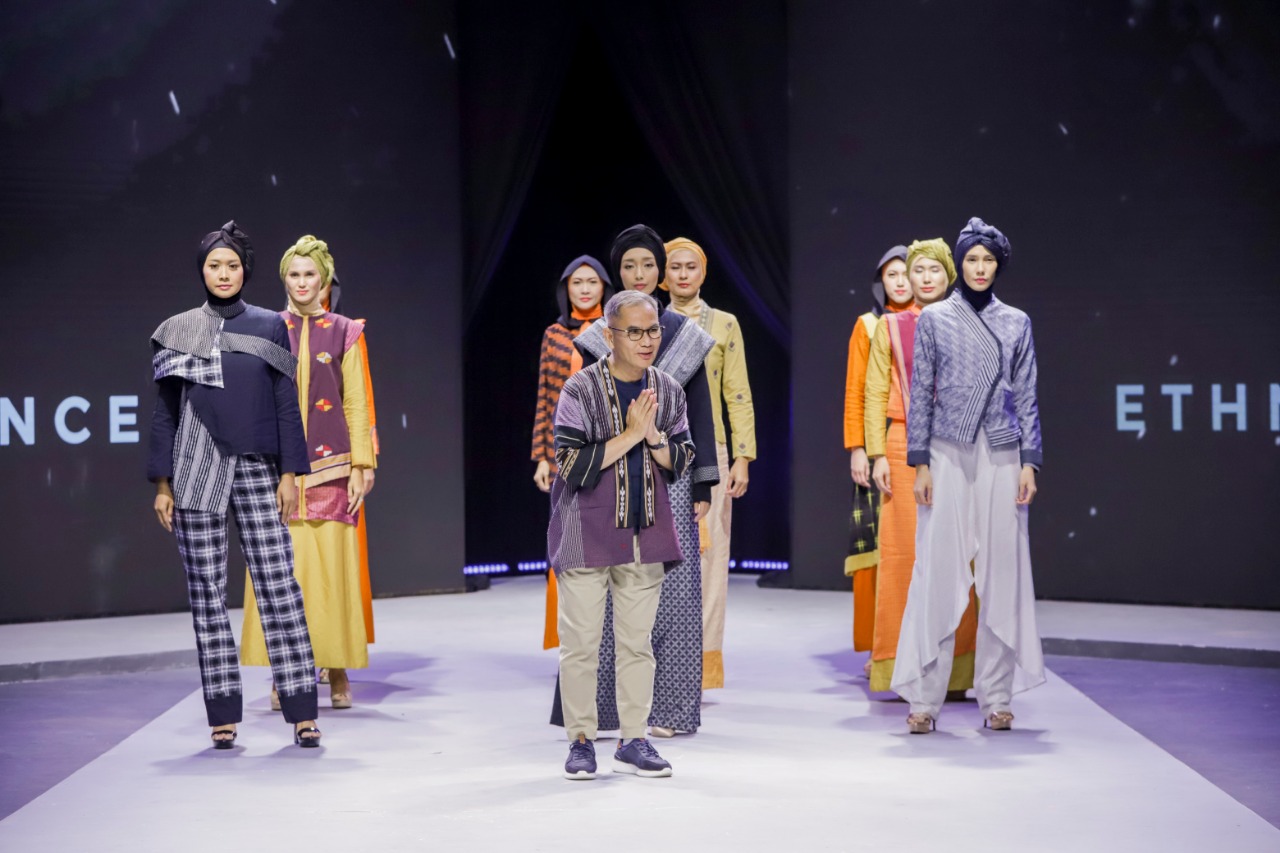Indonesia’s modest fashion businesses hope for Ramadan pick-up after COVID-19 hit
JAKARTA – The outbreak of the COVID-19 has hit Indonesia’s modest fashion businesses as customers stay away from shops, and slowdowns in production and logistics disrupt supply chains. Companies are hoping for better sales numbers from Ramadan that starts towards the end of April.
Designer and business owner Restu Anggraini told Salaam Gateway that supplies of polyester from China have plunged, causing prices to rise.
“COVID-19 is really affecting my business. The prices of materials are ridiculously high, since this industry is part of the global supply chain and China is the biggest polyester maker,” Restu told Salaam Gateway.
Many designers in Indonesia rely on polyester materials and domestically Indonesia only produces rayon, according to Restu.
“[The situation] slowed our production timeline after the Chinese New Year holiday (at the end of January),” she added.
On the demand side, sales have dropped as her buyers overseas, including in Hong Kong, Malaysia, Brunei and Australia. are also affected by consumer slowdown.
Restu said she is now re-thinking her plans to hold fashion shows and meeting buyers in South Korea, which is badly hit by the COVID-19 outbreak.
“The organiser [of the fashion show] and the Indonesian embassy in Korea already warned me that people have died from the COVID-19 within a one-kilometre radius from the planned event venue.”
Restu will launch three collections for Ramadan. Their production started before the COVID-19 outbreak hit and one of them, a collection of 20,000 scarfs priced up to 100,000 rupiah ($7) a piece, has already sold out via a pre-order system.
“I hope that demand during Ramadan this year will remain the same as last year at 60,000 pieces, which is double compared to regular months of around 30,000 pieces,” said Restu.
Anggiasari Mawardi, owner of Anggia Handmade, said her sales have dropped by around 20-30% so far this year.
“Our sales slightly decreased since the COVID-19 outbreak last December. Customers’ appetite for fashion products in general has dampened,” said Anggiasari.
Footfall has slowed, she said, as customers stay away from crowded places.
“My customers also come from outside the Java islands so they are reluctant to travel to other islands, it has affected offline sales.
“We want to do better for the upcoming Ramadan season. Hopefully we can sell three times more compared to the months outside of the fasting month.”
Anggia Handmade normally sells 2,000 pieces a month during Ramadan. The brand’s price point ranges from 350,000 rupiah ($25) to 2.5 million rupiah ($176).
It hopes to complete its four new Ramadan collections before the start of the fasting month at the end of April.
“Also, I will launch my own e-commerce platform, AnggiaCorp, in early March to grab resellers,” added Anggiasari.
Ali Charisma, a designer based in Bali, has also seen his sales drop.
“You know, since the COVID-19 outbreak, tourism in Bali dropped and this is the same with my boutique,” said Ali, who is also chairperson of the Indonesia Fashion Chamber (IFC).
Ali’s price points for his premium ready-to-wear outfits start at around 3 million rupiah ($211) and can go up to 20 million rupiah ($1,410). He normally sells 15 to 60 pieces a month, 80% of which are exported, including to Australia, Kuwait, and UAE.
“The local market usually performs better during Ramadan. I have several boutiques in Denpasar [in Bali] and during the last fasting month, from the fourth day to the tenth day people were visiting Bali and demand in my boutiques doubled. I hope this year will remain good for us.”
He is considering online Ramadan sales on popular sites such as Shopee or Zalora to boost revenue and compensate for losses due to the COVID-19, but is concerned that his premium price points won’t appeal to shoppers on the mass-focused platforms. E-commerce Ramadan sales typically target the 200,000 rupiah ceiling. Pricing down will cut Ali’s margins from up to 80% to only 30%.
NOT ALL BAD NEWS
The good news is that not all brands have been hit by the virus outbreak.
Elhijab, the company behind modest fashion brands Elzatta and Dauky, has not been affected by the COVID-19, Meta Khamalia, its head of marketing told Salaam Gateway.
“Our strategy is to focus on increasing brand awareness and direct selling through fashion shows and e-commerce,” said Meta.
Elhijab attributes increasing brand awareness and a growing sales momentum to its fashion shows in Brooklyn and Manhattan in New York, as well as locally at Muffest 2020. The company also participates in e-commerce and m-commerce programmes such as Shopee Harbolnas in December that it says has contributed to its positive results. Elhijab claims that its hijab brand Elzatta sold 27,000 pieces in a day through Shopee’s Harbolnas programme.
Wignyo Rahardi, owner of the Tenun Gaya brand said the novel coronavirus outbreak has not hit his business since the majority of his customers, around 70%, come from Jakarta.
Wignyo owns more than eight boutiques that are mostly located in the capital city. He sells around 500 pieces a month, priced from 500,000 rupiah ($35) to 2 million rupiah ($141).
“Usually demand rises during the fasting month, up to three times. [In past Ramadans] I sold mainly (60%) male ready-to-wear products and the rest are from the female range.
“We started production this month and will start to sell them in April. I also have buyers from Malaysia, Singapore, and officials like former president Susilo Bambang Yudhoyono,” he said.
(Reporting by Yosi Winosa; Editing by Emmy Abdul Alim emmy.abdulalim@salaamgateway.com)
© SalaamGateway.com 2020 All Rights Reserved
